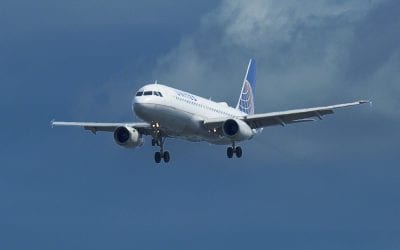Some of us can remember what is was like before 9/11. But the memories are fading. Today, we are starting to see teenagers coming into their own who have never known anything but the world of airport security and endless wars in the Middle East. The numbers of airlines that used to be flying across the country and around the world have changed dramatically and the make-up of the world’s economy has changed enormously. Here are 10 important changes (from my US point of view) the world has seen since that fateful day.
Most of us who were alive on 9.11.2001 remember exactly what we were doing when we heard that the twin towers have been hit by a plane. I was in my apartment in Boston, watching a morning show; which one, I forget. I thought it was a small plane, then a second plane hit. And, America knew this was more than a simple accident. Everyone watched with disbelief as the giant towers, one after the other, pancaked down in place, almost as if a planned demolition was taking place. It was, literally, breathtaking.
Life, as far as travelers knew it, would never be the same. And, for the country, that moment initiated a series of actions that shifted the tectonic plates of international relations. The repercussions are still in our face. And, headlines, like Syrian refugees pouring into Europe over the last weeks, all were spawned from that fateful day.
1. TSA came into being. All Americans, for the first time in our history, were subjected to search, en masse.
2. Full-body scanners. We all know them. We all dislike them. No one really seems to know what they can and can’t reveal.
3. Pre-screening of travelers became the real front lines for battling airline terrorism. The terrorism watch list and a search of every passenger against such a list is the backbone of the security apparatus. Since the improvements to this list, no terrorists have been apprehended at airports in the US. This kind of multilevel screening almost makes the phalanx of security officers unnecessary, except for the lone madman or the forgetful among us.
4. TSA Pre-Check now allows those enrolled in the system to move through security lines, “Just like in the old days, pre-9/11.” The cursory security checks serve as a fig leaf to provide a visible screening for the public. The real work is done behind the scenes.
5. The economic consequences of changes in the travel and tourism world resulted in dramatic shifts within the airline world. U.S. Airways and America West merged in 2005; Delta and Northwest in 2008; United and Continental in 2010; Southwest acquired AirTran Airways in 2011; American and U.S. Airways in 2013. Today, four giant airlines control about 85 percent of the domestic traffic.
6. Airline alliances came into focus. Though the first airline alliance was created in the early 1990s between Northwest Airlines and KLM, the other alliances didn’t fall into place until just before 9/11. Since then, they have taken over something like 80 percent of the international aviation market. Three alliances — Oneworld, SkyTeam and Star Alliance — hold most of the airline world in their folds.
7. Open Skies treaties created a boom in international travel. Once countries allowed airlines the freedom to set their own schedules and plan their own routes back and forth to the US, the world of international travel began to grow enormously.
8. The Middle East and Afghanistan are in turmoil. Our military actions in both countries uprooted the devil we knew and unleashed new demons. The subsequent “Arab spring” released years of pent-up social and religious pressures. Stable, if dictatorial, governments that provided basic services for their populations were overthrown, but without any plans for what was to come next other than “freedom.” This lack of any steady, strong, organized government, has refugee camps overflowing and the stream of those looking for a better life on the move to more stable countries.
9. The growth of the middle class in southern Asia and sub-Sahara Africa has moved the economic center (and thus the crossroads) of the world from being between Europe and the US to somewhere over the Middle East. This, together with the rise of China’s economic machine, has giant consequences for airline travel and trade. None of the most heavily traveled airline routes are in the US or Europe. They are all in the Far East. The world’s busiest international airport is now in Dubai. The US is no longer the center of the economic or transport world.
10. The iPhone didn’t exist. In early 2007 Apple announced the very first iPhone. Designed to “reinvent the phone,” it has reinvented our lives and is forcing a reinvention of how we travel, purchase travel, plan for travel and communicate during travel.

Charlie Leocha is the President of Travelers United. He has been working in Washington, DC, for the past 14 years with Congress, the Department of Transportation, and industry stakeholders on travel issues. He was the first consumer representative to the Advisory Committee for Aviation Consumer Protections appointed by the Secretary of Transportation from 2012 through 2018.



